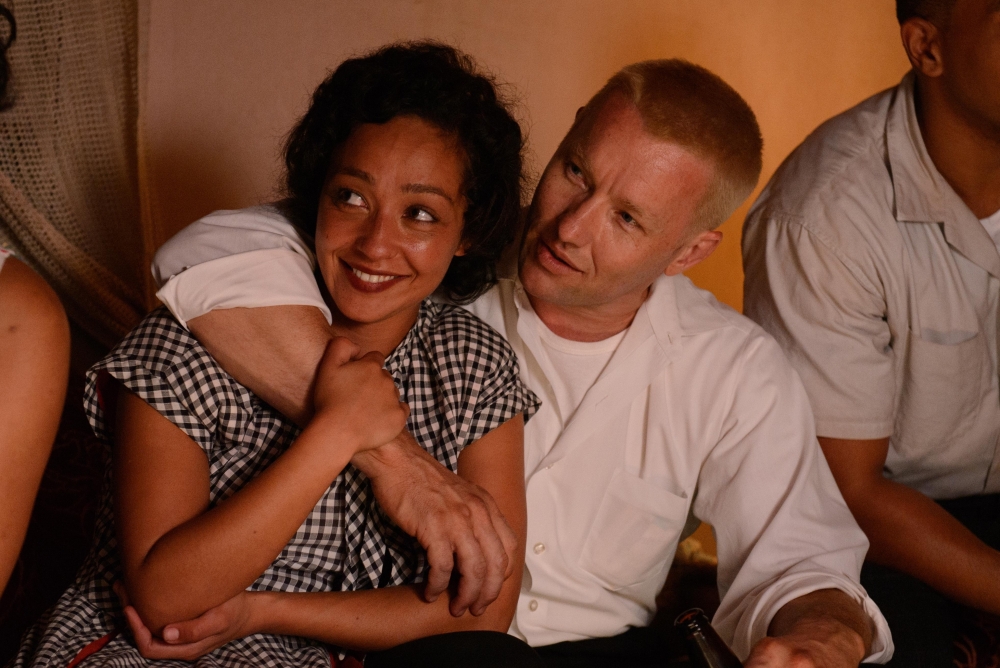
News
Cambridge Residents Slam Council Proposal to Delay Bike Lane Construction

News
‘Gender-Affirming Slay Fest’: Harvard College QSA Hosts Annual Queer Prom

News
‘Not Being Nerds’: Harvard Students Dance to Tinashe at Yardfest

News
Wrongful Death Trial Against CAMHS Employee Over 2015 Student Suicide To Begin Tuesday

News
Cornel West, Harvard Affiliates Call for University to Divest from ‘Israeli Apartheid’ at Rally
'Loving' a Dramatic yet Tender Affair
Dir. Jeff Nichols—4 STARS
Many young people today with little knowledge of constitutional law might be surprised—even dumbfounded—to learn that fewer than 50 years ago, interracial marriage was illegal in large tracts of the United States. Such is a testament to the transformational nature of Loving v. Virginia, the landmark Supreme Court case that declared anti-miscegenation laws to be in violation of the U.S. Constitution and thereby embedded a right to marriage regardless of race in the national consciousness. As a defining moment in judicial history, the “Loving” decision and its courtroom—the site of one of the most important moral and intellectual battles of recent history—simply demand to be addressed on the big screen.
Director Jeff Nichols’s “Loving,” however, is emphatically not the answer to such a call. The director’s newest film—his second this year after “Midnight Special,” which debuted at the Berlin International Film Festival in February—is not so much about the Supreme Court case as it is about the love story behind it. What results is among Nichols’ best work, beautifully acted and eloquently reticent.
The film begins with the budding romance between Richard Loving and Mildred Jeter, a young couple living in Caroline County, Virginia. Despite being of different races—Richard is white, and Mildred is of African-American and Native American descent—the two marry in Washington, D.C., and are expecting a child. It turns out, however, that the locals in Caroline County are not nearly as amenable to the idea of a mixed-race couple as the folks in the nation’s capital are. The Lovings are arrested and given an ultimatum: Go to jail, or leave the state of Virginia. Fortunately, the plight of the Loving family catches the attention of the American Civil Liberties Union, which decides that the couple are well-suited for a precedent-setting challenge in the nation’s highest Court—what would become the now-famous landmark decision.
Although probing into the case’s legal proceedings would have made for excellent dramatic fodder, the film resists the urge to take an arguably more Hollywood-friendly route into courtroom drama territory. We see the Lovings interact briefly with their lawyer, Bernard Cohen (an unexpected dramatic turn by Nick Kroll), and get a glimpse into the actual hearing itself, but we are largely shut out of the legal process. This conscious decision by Nichols may not have been the most commercially sound choice, but it was certainly the right one artistically and holistically. In eschewing courtroom heroics and moral hyperbole for a more personal love story, “Loving” became a stronger and more impactful film.
Faced with the unenviable task of casting a truly iconic star-crossed couple, “Loving” also manages to hit the jackpot. Joel Edgerton, an actor who has seen his star rise dramatically in recent years, departs from his usually bombastic persona to masterfully embody the tacit and understated Richard Loving. And not to be outdone, up-and-coming Ethiopian-Irish actress Ruth Negga holds her own against her more established co-star in what may well be an Oscar-nominated performance as Mildred Loving. Collectively, the two are a stirring combination—one of the most astoundingly well-cast duos of the year. Their efforts, along with that of Nichols, cement “Loving” as a film of record for this tumultuous chapter in American history.
Want to keep up with breaking news? Subscribe to our email newsletter.

